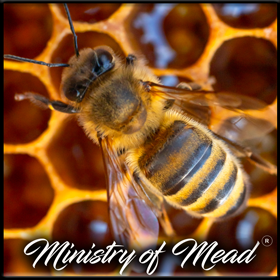Tea Leaves in Mead Making
I like a good cup of tea and much prefer the large leaf, high altitude teas to the "tips' that most tea companies serve, these can be hard to find but I go to great lengths to find them.
But what has this got to do with Mead? Nothing really, except that a lot of Mead recipes call for tea so it needs a mention.
So I am mentioning it.
My tea leaves are very well chosen like any other ingredient I use, but they are not on my Mead ingredient lists, they go in my tea pot, I sometimes drink tea while I make mead and that is pretty well where the connection between tea leaves and mead ends for me.
I will add a bit more though.
Recipes call for their use for tannins, whilst they may be able to give some tannins, they are not going to give the same end quality that other sources will give. Wine tannins are not expensive and give by far the best results and the best control over the types of tannins.
I do plead guilty to using smoked tea leaves to rack a mead over, I was after a specific result and achieved it. It was a one off and I may pursue this again further later on. I have not totally written their usage off.
I did use tea in earlier batches (very fancy tea at that) and then ran alternatives, whilst the tea produced 'acceptable' results it did not produce the outstanding results I was able to get without them.
Herbal Teas, Fruit Teas etc in Mead
If it has not got tea leaves it isn't really a tea. Chamomile tea may well be marketed as such but with no 'tea' leaves it is actually a tisane. Or an extract or a tincture but it is not tea. It is only tea if it has tea leaves.
Many recipes call for making a tea, I use the term because people know what I mean, but I do get corrected at times. When making 'teas/tisanes/extracts" avoid boiling water unless you are sure it is called for. Generally better extraction of finer flavours occurs between 65-80 with tannins starting to appear after this.
Now, back to my cup of tea.

